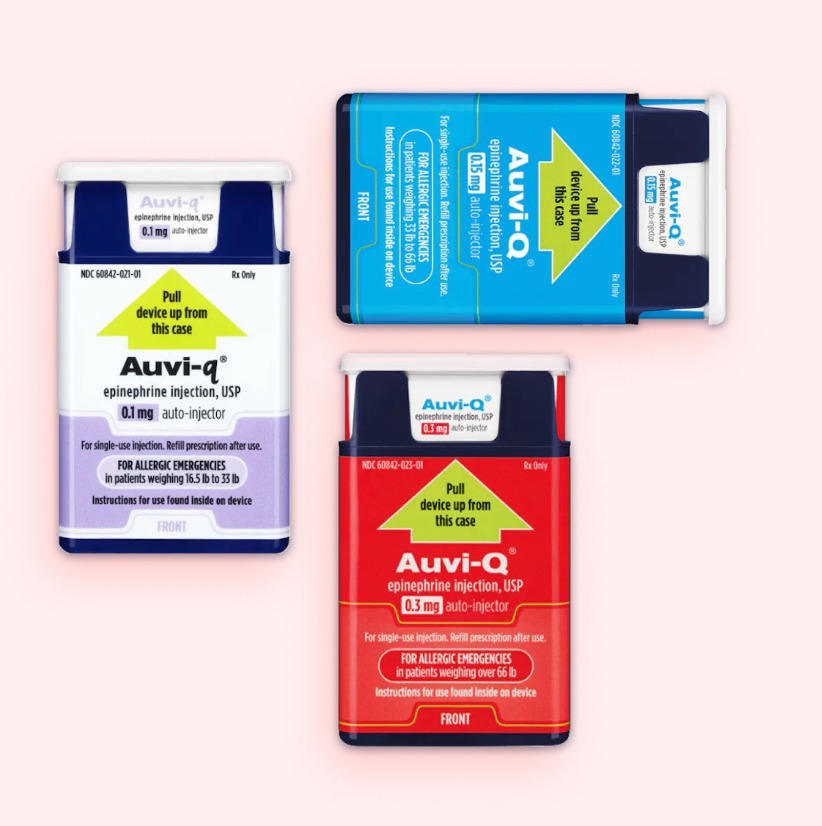Epinephrine is the drug commonly referred to as the Epipen, but this is a brand name and not the underlying drug itself. Hero suggests the Auvi-Q by Kaleo be utilized as the epinephrine applicator of choice for several reasons:
- The injector is an auto-injector that requires a simple press of the device's button
- The device is compact with the needle not exposed
- The applicator or auto-injector comes in 3 sizes, for adults, children and infants
- A trainer unit is included with all sizes of the AUVI-Q, allowing a user to get comfortable with activating the device prior to use, enabling the user is able to listen to the voice prompts for the first time so there are no surprises
- The device provides verbal instructions and a voice prompt upon use that most users find helpful in what may be a bit of a chaotic moment
The injector form (EpiPen) of epinephrine has been available since 1987 in the USA. Today, Hero offers the AUVI-Q over the Epipen, because we believe the AUVI-Q has significant advantages to help saves lives primarily in the event of an allergic reaction, and not as commonly known, also for cardiac arrest victims.
Cardiac Arrest and Croup: Epinephrine (provided by the AUVI-Q) is the primary drug administered during cardiopulmonary resuscitation (CPR) to reverse cardiac arrest (1,2). It can also be used in severe cases of croup (3).
Allergic Reactions: Epinephrine, provided by the AUVI-Q should be used immediately if you suspect someone is having a severe allergic reaction, also known as anaphylaxis. Anaphylaxis is a life-threatening condition that can cause difficulty breathing, swelling of the throat, and shock.
Some Signs and Symptoms of Severe Allergic Reaction:
- Difficulty breathing or wheezing
- Swelling of the face, lips, tongue, or throat
- Hives or itchy skin rash all over the body
- Feeling faint, dizzy, or weak
- A rapid heartbeat
If you see someone experiencing any of these symptoms, it is important to call 911 or your local emergency number immediately. While waiting for help to arrive, you can also administer epinephrine if the person has an epinephrine auto-injector (EpiPen).
Epinephrine should not be used for mild allergic reactions, such as a stuffy nose, itchy eyes, or a few hives.
If you are unsure whether or not someone is having a severe allergic reaction, it is always best to err on the side of caution and call 911.
- Otto CW, Yakaitis RW, Blitt CD: Mechanism of action of epinephrine in resuscitation from asphyxial arrest. Crit Care Med. 1981 Apr;9(4):321-4. [Article]
- Callaway CW: Epinephrine for cardiac arrest. Curr Opin Cardiol. 2013 Jan;28(1):36-42. doi: 10.1097/HCO.0b013e32835b0979. [Article]
- Croup: American Family Physician Document [Link]

